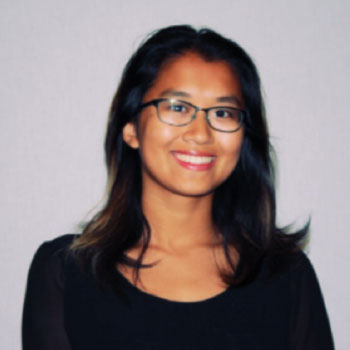Mainstream media, then and now, provides a singular, one-dimensional narrative of femininity. The media’s narrow view of femininity and womanhood is evident through the presence of certain institutions, such as Eurocentric beauty standards and the creation of public images by way of social media sites. However, Sophia Richards, English and religious studies major at Barnard College, wanted to expand that view of femininity by telling stories of womanhood that went deeper than the facades touted by mainstream media. During the summer of 2016, “Mythos” magazine was born and began its mission to “push the boundaries of women’s journalism and democratize accessibility to the hidden wisdom of the women that surround us.”
Sophia Richards is a senior studying English and Religious Studies at Barnard College, a women’s liberal arts college in New York City, affiliated with Columbia University. In addition to being a double-major, Richards is also a model (currently self-represented) and has written for women’s magazines in the past, such as “Nylon.” Her interest in women’s magazines and the narratives they can convey led her to creating “Mythos,” which centers around remarkable women and their unconventional stories about womanhood.

Recently, the magazine celebrated its one-year anniversary since Richards began working on the project in summer 2016 and started publishing in September 2016 during her junior year of college. However, the origins of “Mythos” can be traced back to Richards’ sophomore year.
“My sophomore year of college, I got really into independent press and small-circulation magazines, ‘cause I was in this class that was doing digital archival research,” says Richards. Her interest in magazines burgeoned, which would lead to her observation of a severe lack of long-form essays being published, especially by mainstream outlets. “No one would really publish a good long-form essay anymore, [but] I was seeing evidence of it in these actual physical archival pieces from a couple decades ago.” Richards’ disappointment over this eventually drove her to begin a publication devoted solely to publishing long-form essays.
Also during her sophomore year, Richards began to notice the lack of women’s stories being amplified in the media. Even more prominent was the singular, shallow nature of the subject matter the media tends to focus on, such as the public images of celebrities and their everyday lives, instead of individual stories of remarkable women. “The images I was exposed to when I was younger were really limiting, and that’s all I had. It would have totally changed my life to see women representing.”
The same narrow set of images and ideals for kids growing up also occurred during Richards’ youth, which has motivated her to create more complex narratives than what mainstream media is willing to. “The proliferation of the hot twenty-year-old is the only thing you’ll see, and it’s even harder to find something else,” Richards says, alluding to the media’s obsessive focus on public appearances.

Motivated by the prominent gap in the magazine market as well as the popularity of long-form essays in the 20th century, Richards decided to produce something unconventional that would highlight the voices ignored mainstream media.
What is most significant about “Mythos” is the fact that it is clearly not a mainstream outlet. Additionally, the publication’s focus is both wide and narrow: expanding female narratives in media as well as focusing on the stories of a few, distinguished women. Mythos has interviewed women from a variety of professions, ranging from the visual and performing arts to business. Additionally, Richards’ mission is to push beyond the idea of “every woman viewing the flows and encounters of her everyday existence as objects of public consumption.”
Richards has been a college student throughout the duration of the magazine’s creation, which adds to the difficulty of continuing an independent publication. “I’ve had to make compromises. I really want to go to grad school, and I didn’t know that my first two years, and school is still my priority over this.” Richards has also experienced the difficulty in managing the publication as well as a few staff members in addition to her academic responsibilities. “I got five people to try to work for me at one point, but then that kind of fell through because managing those people is like a whole separate job, so I basically just do it by myself now. I have to publish less.”
When she had just founded “Mythos,” Richards had an ambitious and idealistic outlook for the magazine, naturally hoping for a large audience and immediate success. However, the challenges she faced with managing a staff and adding the magazine to her responsibilities have brought some setbacks for the project. “The moral of the story is that if you’re going to do a project like this, you can have a fantasy but you’ll have to come down to earth.” Though Richards has had to make adjustments to her vision for “Mythos,” her passion for the project drives her to continue her devotion.
Although Richards plans to continue to work on “Mythos,” the future of the magazine will largely depend on the direction of her life. Richards is not entirely sure of her plans after she graduates from Barnard, though she may enter a PhD program. However, the main focus of the publication will continue to be providing a platform to amplify women’s voices, with circulation being a secondary focus. “The most important thing about [Mythos] is that it’s an archival thing. If I never dramatically increased the circulation, I wouldn’t feel like I haven’t done good work.”
Regardless of Richards’ plans for her future, Mythos will continue to tell the voices of remarkable women and to contribute to women’s journalism.
Check out “Mythos” and Sophia Richards’ personal website.

















